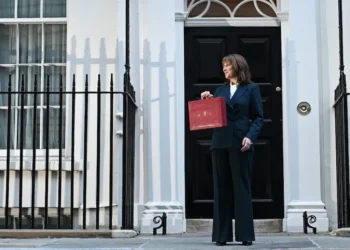Mike Hawes, the Chief Executive Officer (CEO) of the Society of Motor Manufacturing and Traders (SMMT), has expressed his utter dismay at the fall in new car sales in the United Kingdom as of September 2021.
New car sales have fallen to their lowest level in more than two (2) decades as global semiconductor shortage continues to increase.
According to Mike, this was a “desperately disappointing September and further evidence of the ongoing impact of the Covid pandemic on the sector”.
“Despite strong demand for new vehicles over the summer, three successive months have been hit by stalled supply due to reduced semiconductor availability, especially from Asia.”
Mike Hawes
September is typically described as the second busiest month of the year for the automobile industry, because it holds the second annual number plate change, SMMIT unveiled.
Also, the automobile dealers reported 215,312 new vehicles registrations in September 2021, which represents a 34.4 per cent decline from September 2020 record of 328,041, though sales were hit by the coronavirus lockdown.
Just like other sectors, the auto industry, which was already battling with uncertainties around Brexit, was adversely affected by the pandemic shutdowns and economic uncertainty.
According to Financial Times, the automobile industry has continued to struggle to meet demand as the economy reopened due to a global computer chip shortage.
Richard Peberdy, United Kingdom Head of Automotive at KPMG, stated that the figures were likely to “disappoint for a plate-change month that typically sees a noticeable boost in new car registration”.
The supply chain shortages as well as the hangover of some Covid-19 related production bottlenecks were compounded by inflation in parts of the economy, Richard added.

Global chip shortage
The chip shortage started with the slowdown of semiconductor orders by automakers last year, as demand for vehicles declined due to the emergence of the novel coronavirus.
Also, the chip supplies further tightened as a fire outbreak destroyed a Renesas Electronics factory in Japan.
Additionally, chip production in Vietnam and Malaysia was impacted by Government imposed restrictions implemented to bring the delta covid-19 variant under control.
Melrose Industries, the FTSE 100 engineering group, warned that the persistent supply chain bottlenecks were adversely affecting its automotive and metallurgy businesses.
As disclosed by Simon A. Peckham, the British businessman and the CEO of Melrose Industries, shortfalls in semiconductor supply continue to have a rippling effect on company’s ability to plan.
“Tightened supply of semiconductors to the automotive industry are frustrating and difficult to plan for, but whilst they affect current trading, they don’t impact long-term value, particularly as cash is well controlled and debt reduced.”
Simon A. Peckham
Guest, Keen and Nettlefolds (GKN), a subsidiary to Melrose which supplies parts to automakers such as Volkswagen (VW), stated that, “in-month” cancellation has risen to between 20 and 25 per cent.
This, GKN disclosed, is an exponential rise from the usual one (1) per cent observed between January and March 2021.
In the meantime, report from the SMMT have it that, a new record of more than 32,000 new battery electric cars were registered in September 2021.
SMMT’s CEO called on the need for investment in public recharging facilities, to keep up with diverse customer demands.
“Charge point rollout must keep pace with the acceleration in plug-in vehicle registration.”
Mike Hawes
READ ALSO: Work with Other State Agencies to Generate Funds – Senior Minister to Assemblies























